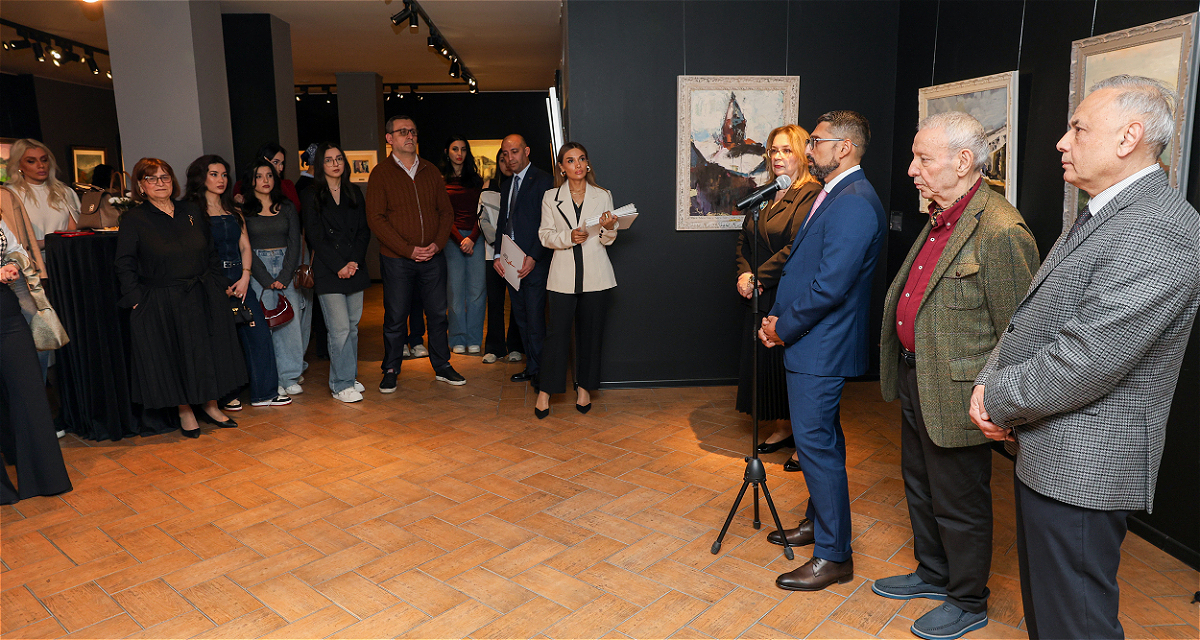 An exhibition of artworks prepared within the masterclass of German artist Inga Schmidt and dedicated to Karabakh has been held
An exhibition of artworks prepared within the masterclass of German artist Inga Schmidt and dedicated to Karabakh has been held

A Memorandum of Cooperation has been signed between the State Committee on Work with Diaspora of the Republic of Azerbaijan and the Karabakh Revival Fund.
The Memorandum was signed by Fuad Muradov, the Chairman of the State Committee on Work with Diaspora and Rahman Hajiyev, the Chairman of the Executive Board of the Karabakh Revival Fund.
The main purpose of the memorandum is to collaborate on joint projects and initiatives to transform the liberated territories into prosperous regions.
The document encompasses support for informing the global community about the cultural heritage, natural resources and ecological damage caused by the Armenian occupation, which holds significant importance for the Azerbaijani people. It also aims to promote donations, support for activities in Karabakh and encourage public-private partnerships.
During the event, the Committee's chairman emphasized the importance of regularly informing Azerbaijani diaspora organizations operating in foreign countries about the reconstruction efforts in Karabakh and the activities of the Karabakh Revival Fund. It is noteworthy that the direction of activities covered by the memorandum aligns with the strategy outlined during the Fifth World Azerbaijanis Congress held in Shusha. Not coincidentally, one of the panels at the Victory Congress was dedicated to "Contributions of the Azerbaijani diaspora to the reconstruction and restoration of Karabakh".
Rahman Hajiyev expressed satisfaction with his participation and contacts with the participants during the Victory Congress held in Shusha, the cultural capital of Azerbaijan, thanks to the initiative of the victorious Supreme Commander-in-Chief, President Ilham Aliyev. He mentioned that since the inception of the Karabakh Revival Fund, they have received support from the State Committee on Work with Diaspora.
During the meeting, Rahman Hajiyev provided information about the accomplishments of the Fund over the past year as well as its current activities. They also exchanged detailed ideas about the projects planned within the framework of their collaboration. Both sides expressed confidence that this partnership would contribute to sustainable resettlement and the creation of favorable living conditions in the liberated territories.






 An exhibition of artworks prepared within the masterclass of German artist Inga Schmidt and dedicated to Karabakh has been held
An exhibition of artworks prepared within the masterclass of German artist Inga Schmidt and dedicated to Karabakh has been held Karabakh Revival Fund and "AmCham Azerbaijan" Held Meeting on “Revival of Karabakh: The Story of Azerbaijan’s Renaissance”
Karabakh Revival Fund and "AmCham Azerbaijan" Held Meeting on “Revival of Karabakh: The Story of Azerbaijan’s Renaissance” Final match and award ceremony of the "Revival Cup" charity football tournament was held
Final match and award ceremony of the "Revival Cup" charity football tournament was held The team of the Karabakh Revival Fund visited the Khojaly genocide memorial
The team of the Karabakh Revival Fund visited the Khojaly genocide memorial Participants of the "Revival Cup" charity football tournament met with children with Down syndrome
Participants of the "Revival Cup" charity football tournament met with children with Down syndrome The Karabakh Revival Fund staff visited the Alley of Martyrs
The Karabakh Revival Fund staff visited the Alley of Martyrs